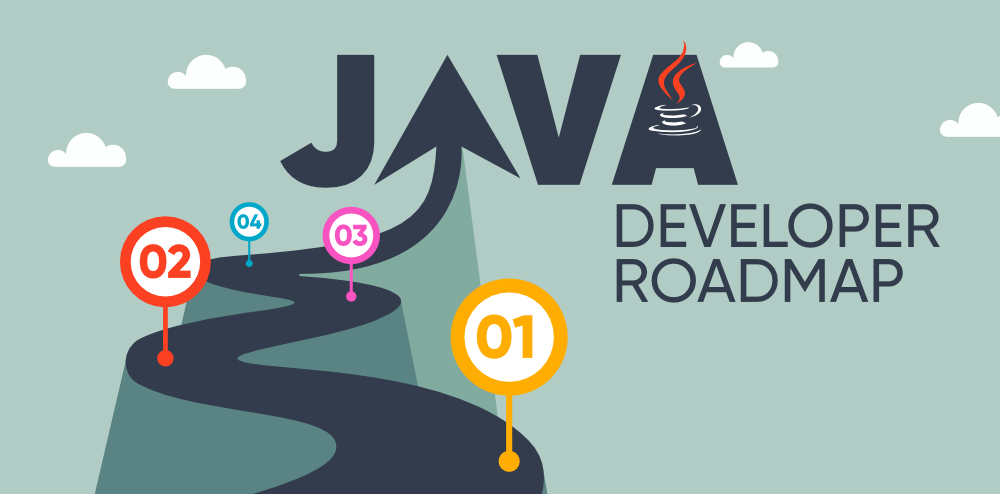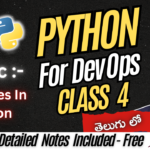
Java has been a cornerstone of software development since its inception in 1995. Known for its portability, robustness, and extensive ecosystem, Java is widely used for building everything from web applications to enterprise systems and mobile apps. Whether you’re just starting out or looking to deepen your knowledge, this roadmap will guide you through the essential stages of mastering Java and advancing your career in programming.
1. Start with the Basics
A. Understand Java’s Core Principles
- Object-Oriented Programming (OOP): Learn the foundational concepts of OOP, including classes, objects, inheritance, encapsulation, and polymorphism.
- Java Syntax: Familiarize yourself with Java’s syntax, including data types, operators, control flow statements (if-else, switch-case, loops), and basic I/O operations.
B. Set Up Your Development Environment
- Install the JDK: Download and install the Java Development Kit (JDK) from Oracle or adopt OpenJDK. The JDK includes tools for compiling and running Java applications.
- Choose an IDE: Popular IDEs include IntelliJ IDEA, Eclipse, and NetBeans. Choose one that suits your preferences and provides features like code completion, debugging, and project management.
C. Write Your First Java Program
- Hello World: Start by writing a simple “Hello World” program to familiarize yourself with the basic structure of a Java application.
javaCopy codepublic class HelloWorld {
public static void main(String[] args) {
System.out.println("Hello, World!");
}
}
2. Deepen Your Core Knowledge
A. Master Java Basics
- Classes and Objects: Learn how to define classes, create objects, and use methods and constructors. Understand the difference between instance and static methods.
- Inheritance and Interfaces: Study how to extend classes, implement interfaces, and use abstract classes for polymorphic behavior.
B. Explore Exception Handling
- Try-Catch Blocks: Learn to handle errors and exceptions using try-catch blocks and the
finallyclause. - Custom Exceptions: Understand how to create and throw custom exceptions to handle specific error conditions.
C. Get to Know Collections and Generics
- Collections Framework: Familiarize yourself with Java’s collections framework, including classes like
ArrayList,HashMap,HashSet, andLinkedList. - Generics: Learn how to use generics to create reusable code and type-safe data structures.
3. Learn Advanced Java Concepts
A. Dive into Multithreading and Concurrency
- Threads and Runnable: Understand how to create and manage threads using the
Threadclass andRunnableinterface. - Concurrency Utilities: Explore Java’s concurrency utilities such as
ExecutorService,CountDownLatch, andSemaphorefor managing complex threading scenarios.
B. Explore Java Streams and Functional Programming
- Streams API: Learn how to use the Streams API for functional-style operations on collections, including filtering, mapping, and reducing data.
- Lambda Expressions: Understand how to use lambda expressions and functional interfaces to write concise and expressive code.
C. Get to Know Java I/O and NIO
- Java I/O: Study file I/O operations, including reading from and writing to files using classes from the
java.iopackage. - Java NIO: Explore the New I/O (NIO) package for non-blocking I/O operations and the
java.nio.filepackage for modern file operations.
4. Delve into Java Ecosystem and Frameworks
A. Explore Popular Java Frameworks
- Spring Framework: Learn about the Spring Framework for building enterprise-level applications, including concepts like dependency injection, aspect-oriented programming, and Spring Boot for microservices.
- Hibernate: Understand Hibernate for Object-Relational Mapping (ORM) to manage database interactions and persistence.
- JavaFX: Explore JavaFX for building rich desktop applications with a modern user interface.
B. Study Java Web Development
- Servlets and JSP: Get acquainted with Java Servlets and JavaServer Pages (JSP) for building web applications.
- Spring MVC: Learn Spring MVC for developing web applications using the Model-View-Controller design pattern.
5. Focus on Best Practices and Patterns
A. Adopt Design Patterns
- Common Patterns: Study design patterns such as Singleton, Factory, Observer, and Strategy to solve common design problems and write maintainable code.
- SOLID Principles: Understand the SOLID principles (Single Responsibility, Open-Closed, Liskov Substitution, Interface Segregation, Dependency Inversion) for designing robust and flexible systems.
B. Learn about Code Quality and Testing
- Unit Testing: Learn to write unit tests using JUnit and Mockito for testing individual components of your application.
- Code Quality Tools: Familiarize yourself with tools like SonarQube for code quality analysis and PMD for detecting code issues.
6. Prepare for Certification
A. Explore Java Certifications
- Oracle Certified Associate (OCA): Start with the OCA certification for foundational Java knowledge.
- Oracle Certified Professional (OCP): Advance to the OCP certification for more in-depth expertise in Java development.
- Oracle Certified Expert (OCE): Consider specialized certifications like Java EE for enterprise-level knowledge.
B. Use Study Resources
- Official Study Guides: Utilize official Oracle study guides and practice exams.
- Online Courses: Enroll in online courses from platforms like Udemy, Coursera, or Pluralsight for structured learning and practice.
7. Build Real-World Projects
A. Start with Small Projects
- To-Do List Application: Build a simple application to manage tasks, learning about CRUD operations and user interfaces.
- Library Management System: Develop a system to manage books, users, and transactions.
B. Tackle Larger Projects
- E-Commerce Platform: Create a comprehensive e-commerce platform with features like product management, user authentication, and payment processing.
- Chat Application: Build a real-time chat application using Java’s networking and concurrency features.
8. Stay Engaged and Updated
A. Follow Java Community and News
- Java Blogs and Forums: Stay updated with the latest trends and updates by following Java blogs and forums.
- Conferences and Meetups: Attend conferences like Oracle Code One and local meetups to network with other Java developers and learn from industry experts.
B. Contribute to Open Source
- Open Source Projects: Engage with open-source projects on platforms like GitHub to gain practical experience and contribute to the community.
Conclusion
Mastering Java involves a blend of foundational knowledge, advanced concepts, practical experience, and continuous learning. By following this roadmap, you can systematically build your expertise in Java and leverage its powerful features for a wide range of applications. Whether you’re aiming to become a professional Java developer or simply looking to enhance your programming skills, embracing this roadmap will guide you on your journey to becoming proficient in one of the most versatile and widely-used programming languages. Start today, and unlock the potential to create innovative and scalable solutions with Java!







